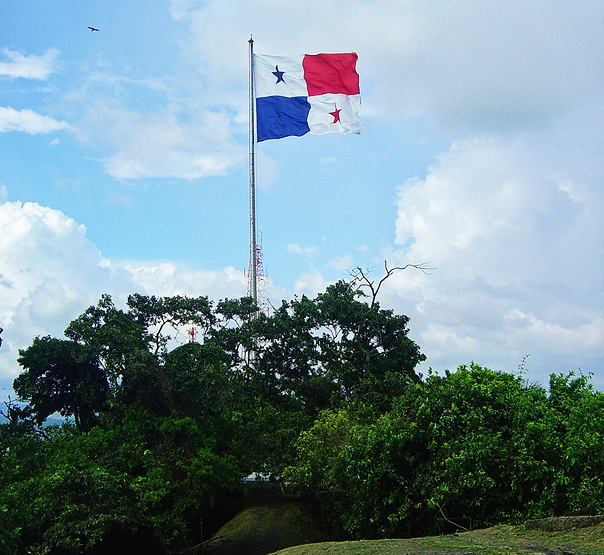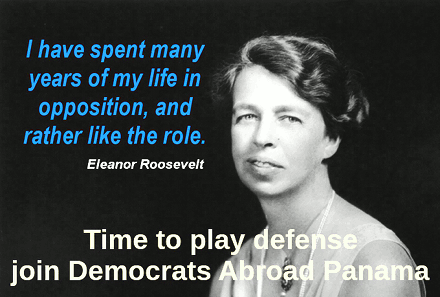
The Day of the Martyrs
Another Day of the Martyrs is upon us on Monday, January 9. It’s a national day of mourning rather than a holiday as such, which means that those who will spend it at the beach need to stock up on alcohol in advance if that’s their vice, because there are no legal liquor sales on that day. Because it falls on a Monday this year it’s another long weekend, with crazy traffic starting back from the Interior on that day but with traffic in the city generally light compared to that of a working day.
But for those Panamanians most deeply concerned with the nation’s fate, it’s something more. To such folks the Day of the Martyrs is a solemn occasion on which people gather to remind themselves and others of the sacrifices that have been made to make Panama one country with at least the formal trappings of sovereignty, and of the long way yet to go before we have the full measure of independence.
It’s the anniversary of rioting that swept the nation in 1964, sparked by a relatively trivial incident but setting into motion historic shifts long in the making. Panamanians, Americans and Puerto Ricans fighting for the United States died in those events. People will make speeches about what the martyrs’ gesture meant, but what the nation meant is that Panama wanted to be master of its own house and that there were people willing to risk death for this cause.
So the American Embassy put out its annual warning, urging people to stay away from the Plaza Cinco de Mayo area, where some of the protesters will gather. Yes, if you are driving and you want to avoid traffic jams caused by people marching in the streets, don’t drive in that area or on Avenida de los Martires on January 9. And if you do get caught in a traffic blockage caused by people in the streets, wait it out with grace and good humor. Don’t be a belligerent jerk. This is Panama.
On this particular Day of the Martyrs, the hazards of being an ugly American appear to be raised for three reasons. We have demagogic Panamanian politicians railing against all foreigners and too many ordinary citizens willing to buy that “you’re poor because they’re rich” variety of anti-American screed. We have a US government demanding the sale of Panama’s oldest newspaper and its largest circulation newspaper — also the major national media with the most independent and eclectic editorial lines — to new owners who meet their approval, and we have a Varela administration that accepts this foreign imposition. And then the USA has just chosen a next president who got to where he is by racist characterizations of Latin Americans, a man whom most Panamanians despise. This is not the time for somebody to pick a fight with people marching to observe the Day of the Martyrs and loudly assert some claimed prerogatives of being a US citizen.
Odebrecht
In Panamanian parlance “magna carta” means any constitution. The 1215 English original, written in Latin at the time, is well summarized in one brief sentence, its clause 40, that also states the essential yearning of most Panamanians today: “To no one will we sell, to no one deny or delay right or justice.”
The Panama Papers are about the sale of justice. Alejandro Moncada Luna is in prison for crimes related to the sale of justice. Our public institutions are in disrepute because of the sale of justice. And that’s what the Odebrecht scandal is all about as well.
Clause 50 of the Magna Carta seems so much more obscure and so much less relevant to anything today:
We will remove completely from their offices the kinsmen of Gerard de Athée, and in future they shall hold no offices in England. The people in question are Engelard de Cigogné, Peter, Guy, and Andrew de Chanceaux, Guy de Cigogné, Geoffrey de Martigny and his brothers, Philip Marc and his brothers, with Geoffrey his nephew, and all their followers.
Gerard de Athée was a Norman mercenary knight from Touraine in what is now France, who rose to great prominence under King Richard the Lion Hearted and his corrupt brother and successor, King John. England’s possessions in France had fallen one by one, but one of the last, the castle at Loches, held out under de Athée’s command. King John paid a large ransom to free the knight and brought him and his relatives and top lieutenants over to England, where they were installed in various public offices. Gerard de Athée became the commander of the royal forces in southern Wales, the High Sheriff of Gloucestershire and Herefordshire, and the High Sheriff of Nottinghamshire, Derbyshire and the Royal Forests. The bad guy in the Robin Hood stories is based upon him. Scholars argue about whether he was the scoundrel of legend or just a maligned government official who fell afoul of a rising English nationalism that had low regard for foreign knights in public offices.
In any case, the expulsion of this knight and his entourage from public posts at the behest of the knights and nobles ready to do battle with the king at Runnymeade was an extraordinary constitutional event. They were not directly accused of crimes, thrown into dungeons, exiled, executed or put on trial. They were just the servants and beneficiaries of a predatory system whose abuses were curbed by the Magna Carta. Their disgrace was not about the rule of law, but a matter of revolutionary justice.
And now Panama sinks toward economic stagnation under a president who broke his promise to convene a constitutional convention. The predations of the system we have here are ever more internationally notorious. After the Panama Papers, the abuse of our legal system by foreign career criminals who would cover their tracks by having journalists jailed, Ricardo Martinelli thumbing his nose at the nation from Miami, now we have, by way of other countries, the Odebrecht bribery revelations. But the Electoral Tribunal insists that the Odebrecht contributions to political campaigns of which it knows are to be kept secret, the Comptroller General refuses to audit government contracts with Odebrecht and President Varela and the National Assembly passed a law providing that whatever crimes for which Odebrecht has been found guilty in foreign courts count for nothing in Panama.
The names of all Panamanian public officials who took bribes, campaign contributions or gifts from the corrupt Brazilian-based multinational conglomerate ought to be revealed to the press and public. Like Gerard de Athée et al, these people should forever be barred from all public offices in Panama. They sold right and justice to Odebrecht. Without regard to the niceties of court procedures the Panamanian people should not put up with that.
Bear in mind…
~ ~ ~
These announcements are interactive. Click on them for more information.










